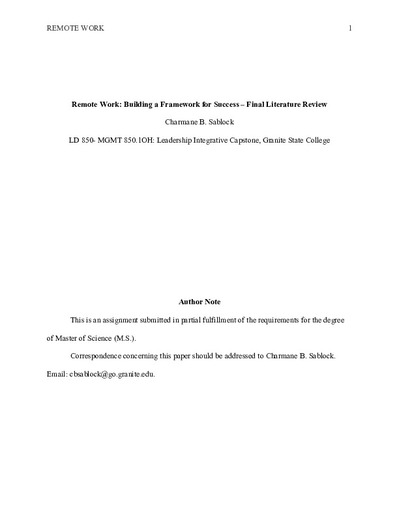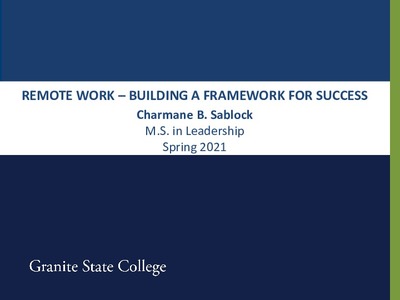| dc.description | The recent COVID19 pandemic has turned the word remote work into a business buzz phrase. While some businesses embraced remote work before the pandemic, many organizations needed to make quick decisions implementing a remote workforce as the pandemic unfolded and required them to send employees home to work during Stay at Home orders to insure employee safety through social distancing. This research is focused on both the advantages and disadvantages of implementing a remote work model within an organization. While there are studies reporting aspects of employee performance that improved, there were also challenges noted with performance of individuals and teams. Remote work can also be seen as a valuable benefit for employees who desire flexibility in their work-life balance, but there are also some challenges for many individuals who may have a difficult time balancing their workload with their home life. Managers and organizations need to consider both the positive and negative aspects of remote work and tread carefully with appropriate evaluation of all the factors surrounding remote work and develop best practices and training to mitigate any negative impacts in order to insure success for both the employee and the business. This research uncovers some of the important factors managers need to consider for making remote work effective and successful. | |


